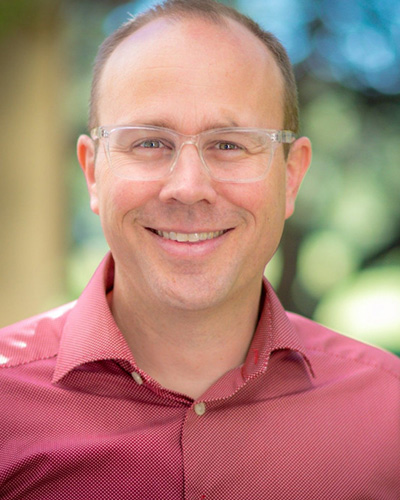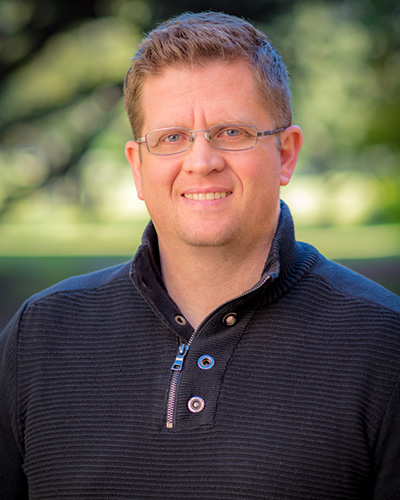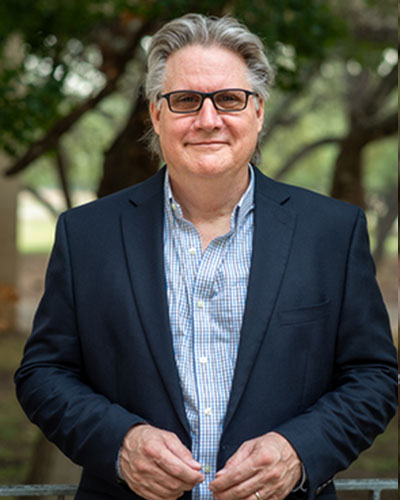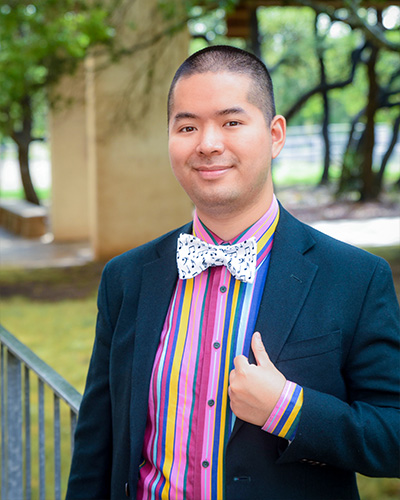The UTSA School of Music offers a Bachelor of Music with a Composition Emphasis. This degree is accredited by the National Association of Schools of Music.
Students are normally admitted to the composition program at the end of the freshman year, after completing MUS 1141 (Beginning Composition). Nevertheless, we encourage prospective composition students to meet with composition faculty on their audition day.
For those appointments, applicants can bring:
• Samples of your best compositions (completed or in-progress) and recordings (if any).
• A list of all of your compositions
This informal meeting is an excellent time to discuss the UTSA composition studio, degree requirements, career options, etc.
The audition for admission to the composition degree takes place at the end of the freshman year, after completing the Beginning Composition course during the spring semester. In that course, students will receive basic instruction in the fundamentals of composing, and will generate a body of work. That work is submitted to the faculty in the form of a portfolio at the end of the semester. Once a student successfully passes this review process, they are admitted to the composition program.
If you have further questions about the composition program, contact Dr. Ethan Wickman.

Degrees:
- Bachelor of Music, Music Composition
Composition Faculty



Composition Lessons
Composition lessons are one on one with a member of the faculty. Preference for a particular teacher will be honored, subject to the constraints of individual faculty teaching loads. Students are free to change teachers during their course of study, and are indeed encouraged to do so. Composition majors typically receive weekly private lessons, and also meet together a number of times each semester as a group seminar for discussion of issues of mutual interest, presentations by guest composers, and the like.
Typically students begin taking composition lessons their sophomore year, after successfully passing the composition audition and completing Basic Skills of Music II. This is done to ensure that students have a basic music theory foundation and adequate musical vocabulary so that student and teacher can communicate effectively in lessons. In rare circumstances, students with significant prior experience composing (including some transfer students) can request lessons during their first year of study.
Composition students are expected to compose music in a wide variety of media. The faculty believes that the best training a young composer can have, regardless of his or her ultimate interests, is thorough grounding in the techniques of Western art music (the "classical" tradition). With training such as this as a background, composers can go on to write virtually whatever type of music they wish. Aside from this, the composition faculty do not promote any particular compositional style or ideology. Faculty and students composers alike represent many diverse stylistic outlooks, and students are encouraged to explore these both through composing and listening.
Students electing the Composition emphasis must interview with the Composition Committee for approval to pursue the Composition emphasis at the upper-Department level. Typically this interview takes place after the student's sophomore year.
Performance Opportunities
There are regular opportunities for students to arrange performances of the music they write. There is typically one Composition Area Recital each semester on which all students taking composition lessons are expected to have at least one piece performed. There have also been recitals devoted to electronic, multi-media and video works (usually created at the UTSA Electronic Music Studio). In addition, students are encouraged to have their music performed on MUS 2001 concerts (which are regularly scheduled throughout the year on Tuesday mornings at 11:00 AM), recitals given by other students or to put on ad-hoc recitals themselves, either singly or in groups.
All composition majors must give a Senior Recital of their music. The student's Senior Recital (MUS 4561) shall include a selection of the student's compositions totaling a minimum of 30 minutes. The student will submit completed musical scores, representing a majority of the proposed recital program, to an examining committee the semester prior to that of the recital. The examining committee shall determine the acceptability of the recital program.
Guest Composers and Performers
Composers and performers who specialize in new music regularly come to UTSA as guests of the Department of Music to speak to students. In recent years these have included composers Joan Tower (pictured below), Samuel Adler (pictured left), Robert Xavier Rodriquez, Libby Larsen, Phillip Glass, Jason Robert Brown, Andrew Rindfleisch, Sir Malcolm Arnold, David Ashley White, Joseph Klein, Robert T. Smith, Hye Kyong Lee, Timothy Kramer, William James Ross, Robert Nelson, Jake Romig, S. Beth May and Michael Horvit; composer/flutist Robert Dick; composer/bass clarinetist Michael Lowenstern (pictured above), composer/guitarist Alan Hirsh, composer/pianist Roger Steptoe, pianist Nicholas Phillips, pianist and conductor James Lowe, pianist Richard Smith, pianist Jeffrey Jacob, clarinetist Robert Walzel, pianist Evelyn Luest, the Paul Dresher Ensemble, the Michigan Chamber players with Keiko Abe, and the SAVAE Vocal Arts Ensemble.

